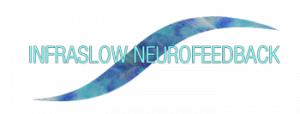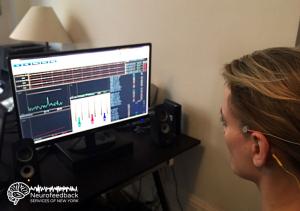Introducing Infraslow Associates: An Emerging Leader in Neurofeedback Training and Education
Infraslow is emerging as a leader in Neurofeedback training, providing online education for therapists to help clients with depression, autism, PTSD, & more.
UNITED STATES, March 22, 2022 /EINPresswire.com/ -- Infraslow Fluctuation Training comprises a team of clinicians to help other clinicians and therapists learn about neurofeedback. Founder and owner of Infraslow Associates, Mark Lewellyn Smith, developed this mental wellness platform to provide neurofeedback training for therapists.According to a recent study by The Lancet Regional Health - Americas, the pandemic has increased mental health issues among the general population, with depression rising from 27.8 percent in 2020 to 32.8 in 2021. With isolation being a significant part of the pandemic, training in such techniques has been challenging. Luckily, Infraslow's Neurofeedback training website has been available to help train clinicians using online research available through the site, online workshops, and educational blogs.
Neurofeedback is a non-invasive way of conditioning through brainwaves. This form of biofeedback has been around for around fifty years but is starting to gain traction. Joe Kamiya at the University of Chicago and Dr. Barry Sterman at UCLA are credited with being pioneers in the initial research. However, Hans Berger created the first EEG (Electroencephalography) device to measure the electric currents of the brain. Dr. Kamiya helped people reach an alpha state and then rewarded them using the sound of a bell. In the 1970s, Dr. Joel Lubar started using their findings to treat ADHD in adults and children. Studies showed significant improvement in patients after receiving neurofeedback training. Eventually, NASA used this training to control their astronauts' brains' SMR (sensorimotor rhythm), improving attention and focus.
In the 1990s, neurofeedback expanded to help with even more psychological conditions besides ADHD. Scientists have moved from experimentation with neurofeedback within the last decade and have started to accept it as a practice. Neurofeedback is now juxtaposed with the term neuroplasticity. Both neuroplasticity and neurofeedback relate to each other in that neuroplasticity is the brains' ability to alter its connection to daily activities, while neurofeedback is the stimuli that allow this change to occur.
Neurofeedback works by connecting a patient to a computer that measures brain waves to change the brain's behavior. Clinicians place leads to the head of the patient watching a video. When the brain performs optimally, it receives a reward by the image on the screen appearing bright and providing some form of encouragement. On the other hand, when the brain performs poorly, the image on the screen isn't as encouraging. Some clinicians may also administer this "reward and punishment" via an audio component. Whether a clinician uses an audio or visual tool, the outcome should remain the same.
The general belief is that rewarding the mind more than punishing it will start to change and behave differently. These training sessions typically last up to about 30 minutes, with patients starting to see results in real-time almost immediately. The number of sessions administered by the clinician generally is 20, with clinicians administering two to three sessions weekly. However, depending on the severity of the patient's case, the clinician may recommend more sessions. Ideally, when patients finish all the treatments, the patient should change based on changes to their brainwaves.
Infraslow is the new kid on the block in terms of neurofeedback training. Although neurofeedback has been around for several decades, Infraslow has been operating for about 16 years. A licensed clinical social worker, Mark Smith got his start in neurofeedback while working with first responders' families after 9/11. Since then, he has grown this form of biofeedback into a team of seven medical professionals to provide neurofeedback therapy training.
Armed with powerful educational tools, including their excellent online research publications on neurofeedback and workshops, Dr. Smith's team is leading the way in neurofeedback training for clinicians. For those clinicians who want to move away from traditional methods and try this breakthrough strategy, the team at Infraslow shows them how. The workshops typically discuss details about how ISF affect the brainwaves. The blog and research publications discuss the latest research on neurofeedback and how it helps patients minimize problems with neurotic disorders.
Infraslow aims to assist clinicians with training on using neurofeedback to help people with autism, depression, anxiety, insomnia, and other neurological disorders. Instead of relying on traditional methods, the Infraslow team uses an Infraslow Fluctuation or ISF. The ISF neurofeedback sessions help clients get over past trauma and anxiety by playing tones while measuring brainwave activity. The clinician will change the frequency until it gets to a point where the client is entirely comfortable. As a result of training, neurofeedback ideally should realign the brain using sound instead of using traditional invasive methods, such as medication or electrical pulses. The amount of sessions necessary to achieve success depends on each individual case.
ABOUT INFRASLOW ASSOCIATES
In 2000, Mark Lewellyn Smith, LCSW, BCN, QEEGD, founded and became the Clinical Director of Neurofeedback Services of New York. After helping patients affected by 9/11 for many years, he saw progress in patients, leading him to establish the Infraslow Neurofeedback site to help train other clinicians in this emerging field of therapy. He and his team train other clinicians how to help others heal from autism, insomnia, and brain trauma using the ISF method.
For licensed clinicians wondering "where is neurofeedback training feedback near me," consider taking one of the upcoming online neurofeedback training workshops conducted online via the Infraslow website. Click the Neurofeedback Services of New York link for more info to learn more, our office is located 140 W 79th St #2B, New York, NY 10024. Also, don't forget to visit Infraslow's Neurofeedback website for more information on their blogs and in the research section. You can use the new find a practitioner tool to find a neurofeedback specialist near you!
Mark Smith, LCSW, BCN, QEEGD
Infraslow Associates
+1 212-877-7929
infraslowneurofeedback@gmail.com
Visit us on social media:
Facebook
Legal Disclaimer:
EIN Presswire provides this news content "as is" without warranty of any kind. We do not accept any responsibility or liability for the accuracy, content, images, videos, licenses, completeness, legality, or reliability of the information contained in this article. If you have any complaints or copyright issues related to this article, kindly contact the author above.


